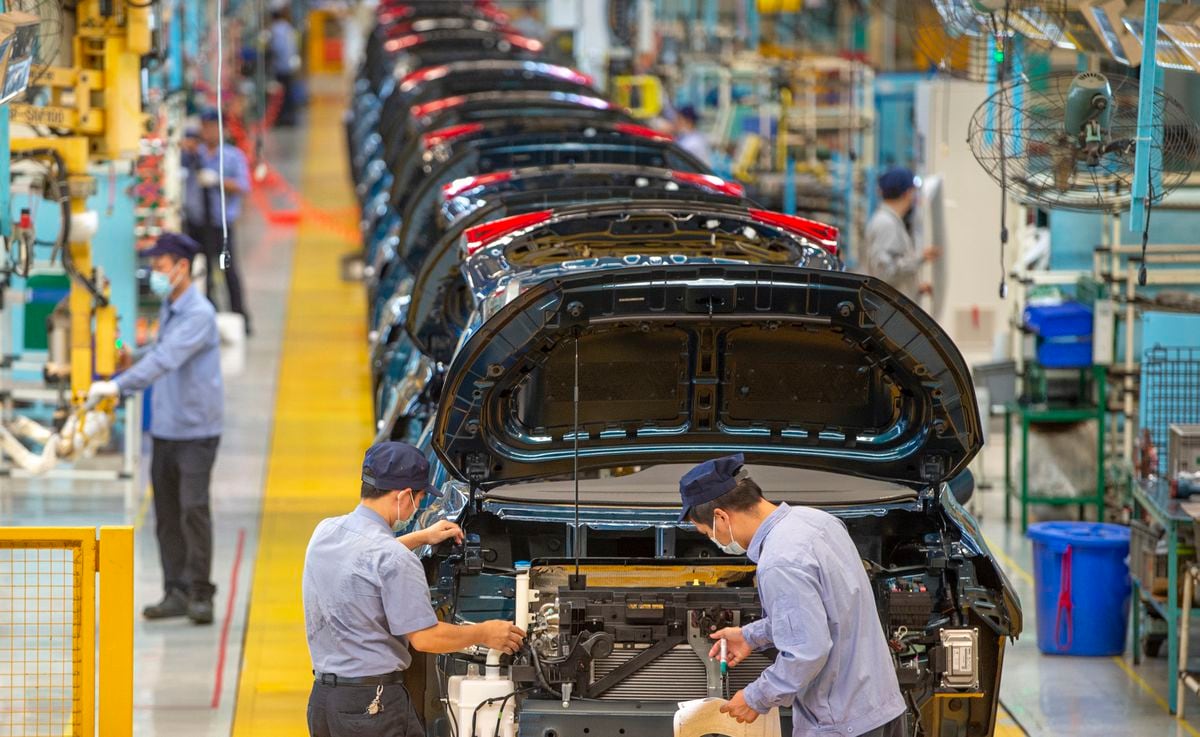Political meddling is just one of the headaches for Western automakers in China.
Last month, Carlos Tavares, CEO of Stellantis, blamed government interference for the cancellation of the Jeep maker's joint venture in the world's largest car market.
More worryingly, however, local manufacturers are gaining market share, and could soon pose a greater threat elsewhere.
For decades, large automakers seeking to establish themselves in China were forced to create expensive joint ventures with local companies.
Beijing hoped that this strategy would turn inefficient local partners into industry champions.
But the policy failed.
These companies not only failed to develop export markets, but even the most patriotic Chinese consumers preferred cars made by Nissan Motor, General Motors or Volkswagen.
In 2000, the German company owned more than 50% of the Chinese market.
More information
Why China is leading the electric car race
However, as China eases restrictions on joint ventures, local competitors are stepping up the gas.
Last year, foreign automakers saw their combined share of the Chinese car market shrink by 5.5 percentage points to 45.6%.
In the first half of 2022, Volkswagen's share was 15.5%.
There are two factors driving the growing competitiveness of Chinese automakers.
First, the growing pool of domestic technical talent has contributed to the creation of thriving private manufacturers like BYD, Geely, which owns Volvo, and Great Wall Motor.
They are now competent manufacturers of conventional mid-range passenger cars and can attract top foreign designers from BMW or the Italian design company Pininfarina.
The second factor is Beijing's campaign to jump ahead of the West in developing electric vehicles.
Last year, China registered 3.3 million hybrid and battery cars, accounting for 16% of total sales.
Europeans bought 1.1 million fewer electric vehicles.
Chinese automakers can build lighter but still safer bodies compared to international rivals, McKinsey reckons.
They also have access to cutting-edge battery knowledge through local leaders such as contemporary $194 billion company Amperex Technology.
Currently, Tesla is the only foreign automaker to feature in the Chinese industry association's top 10 best-selling electric vehicles list.
Research firm Redburn estimates that Volkswagen has only 10.8% of China's electric vehicle market so far this year, though the $89 billion company plans to launch new models and is investing in research and sales centers.
This increased competitiveness has repercussions outside of China.
As local manufacturers expand, they reinvest their profits to take on Western giants in other markets.
BYD, the Warren Buffett-backed Chinese automaker that is challenging Tesla for the title of the world's largest electric vehicle maker, shipped its first shipment of 1,000 Atto 3 sport utility vehicles to Australia in August.
As Chinese cars appear on Western roads, the volume of complaints about political meddling will only increase.

